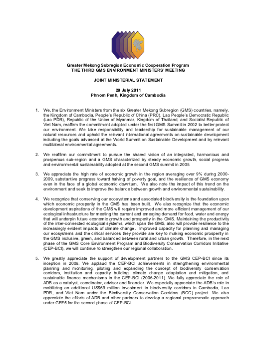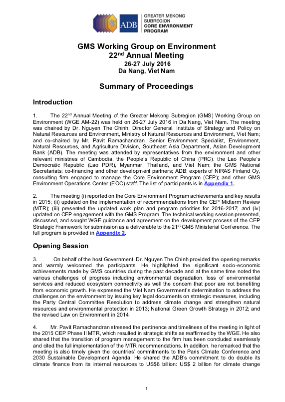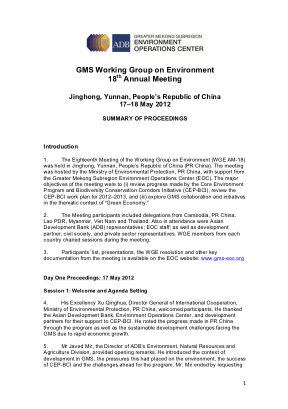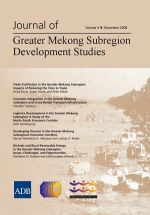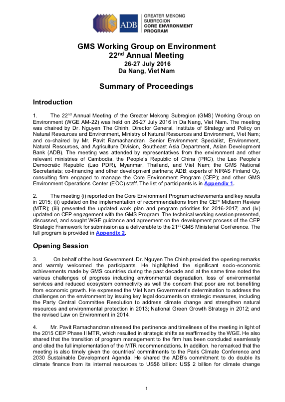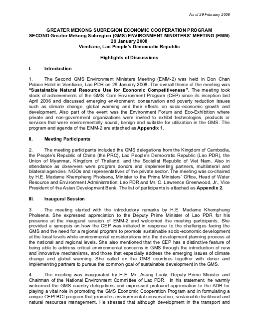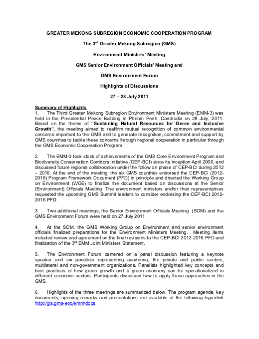
3rd Greater Mekong Subregion (GMS) Environment Ministers’ Meeting
The Third Greater Mekong Subregion Environment Ministers Meeting (EMM-3) was held in the Presidential Peace Building in Phnom Penh, Cambodia on 28 July, 2011.
Based on the theme of “Sustaining Natural Resources for Green and Inclusive Growth”, the meeting aimed to reaffirm mutual recognition of common environmental concerns important to the GMS and to generate recognition, commitment and support by GMS countries to tackle these concerns through regional cooperation in particular through the GMS Economic Cooperation Program.

